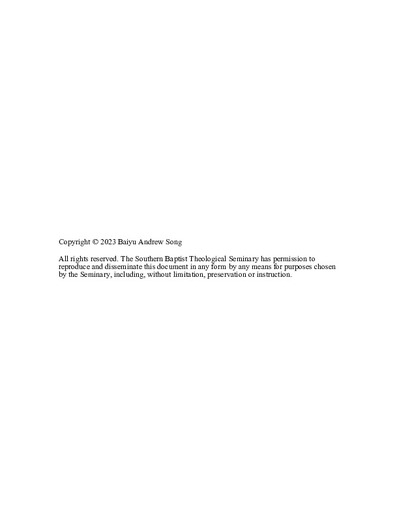“The Steady Obedience of His Church”: The Ecclesial Spirituality of Joseph Kinghorn and the Communion Controversy, 1814–1827
Abstract
Despite being recognised as one of the most learned English Particular Baptists, Joseph Kinghorn’s (1766–1832) legacy was damaged due to his defence of the close communion position during the more than a decade-long debate with Robert Hall Jr. (1764–1831). While recognising the preliminary works of Martin Hood Wilkin (1832–1904), C. B. Jewson (1909–1981), W. R. Ward (1925–2010), John H. Y. Briggs, and others, this dissertation uses Joseph Kinghorn’s ecclesial spirituality as a starting point to reconsider the Hall-Kinghorn communion controversy in its socio-historical and theological contexts. In particular, by connecting the published debates with neglected primary sources, this dissertation argues that it was not only inevitable for the Particular Baptists to resume their debates over the terms of communion by the end of the long eighteenth century when the denomination was facing another identity crisis in light of its rising to the global stage, but also necessary for Joseph Kinghorn to represent the close communionists, despite his dislike of squabbles. Furthermore, by tracing back to various German influences, this dissertation looks beyond the British theological traditions and argues that the definition of the church was at the core of the Hall-Kinghorn communion controversy. After the introduction, which presents the status quaestionis, thesis, and methodology, chapter two reconstructs the life of Joseph Kinghorn. Chapter three surveys Baptist controversies over the terms of communion, from the formation of the Baptist sect to the eighteenth-century Evangelical Revival. By engaging various sources, it analyses the debated arguments in light of the socio-historical changes. Chapter four returns to Joseph Kinghorn and enquire into his internal ideas of the Christian church. Guided by his Augustinian distinction of the invisible and visible church, this chapter reconstructs Kinghorn’s ecclesial spirituality by engaging his published works and unpublished correspondence. Chapter five then focuses on the Hall-Kinghorn communion controversy. By examining each round of the published debate, this chapter engages the broader intellectual cultures and traces the sources and connections of each party’s arguments.

